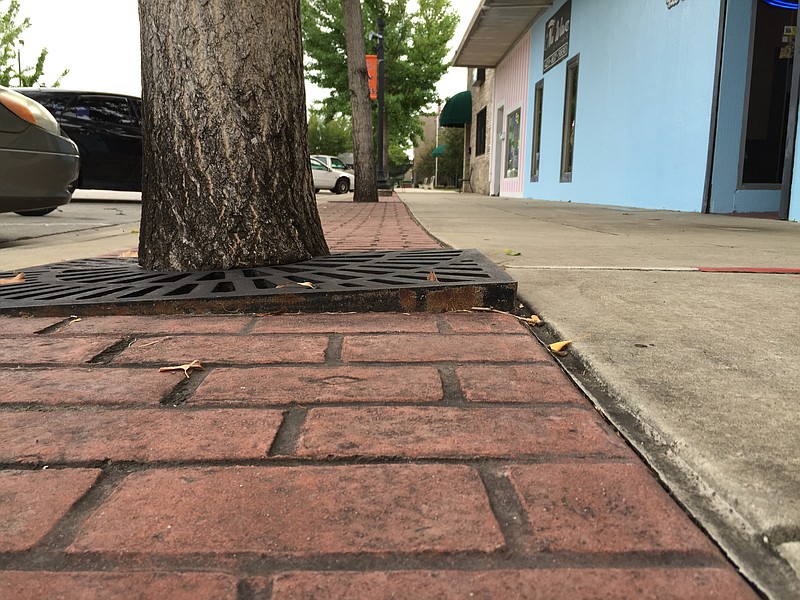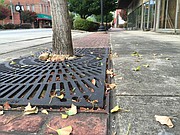SOUTH PITTSBURG, Tenn. - What seemed like a good idea years ago has turned into a potential financial nightmare for two Marion County towns.
During downtown streetscape renovation projects in South Pittsburg and Jasper, Chinese ginkgo trees were planted along the upgraded sidewalks lining the cities' streets.
Now the trees are bearing fruit, which they weren't supposed to do, and the root systems are damaging the pavement and threatening some drainage tunnels under the streets.
South Pittsburg's downtown renovation project was completed in the mid-1990s, and officials said the trees were supposed to all be certified male so they wouldn't bear fruit.
When they matured about 10 years later, it was clear they weren't all male.
"It's slimy and it stinks," resident Carolyn Millhiser said about the small, apricot-like fruits whose smell was described in a Wall Street Journal article as a cross between vomit and putrid cheese.
"Anybody that has a business down front knows what I'm talking about. Unfortunately, the slippery pulp can be a liability," Millhiser said.
She said the trees' root systems are "pooping up" the concrete sidewalks in many places.
"Somebody needs to take the lead in getting a plan to fix this problem before it gets worse," Millhiser said. "It's not going to be cheap, I know."
The town started injecting the trees with chemicals in 2010 in an effort to impede their fruiting ability, but in 2012, officials said it could take up to five years for the treatment to work.
Mayor Jane Dawkins said city leaders hear frequent complaints about the trees.
At the August meeting of the South Pittsburg City Commission, Dawkins said she would organize a committee of city administrators and concerned citizens to address the matter.
"It is a problem if you own a business downtown," she said. "Those things come in on your carpet and on the carpet in your cars, and it is time to address it."
She said being on the committee would require "work and dedication" because "we're going to do it right."
Twenty-nine ginkgo trees were planted around Jasper's downtown square in the early 2000s, and it also only took about a decade for them to start causing problems for pedestrians and store owners.
"We have some problems down there," Mayor Paul Evans said in November 2014. "Not with all of the trees, but some of them are pushing the concrete up, and they become a tripping hazard. We're going to have to do something."
The Jasper Board of Mayor and Aldermen has discussed the issue several times over the last two years and even hosted a public meeting on the matter last year, but so far no significant action has been taken to address the problem.
Some of Jasper's trees bear fruit, too, and that has caused the same kinds of problems as in South Pittsburg.
The trees' root systems are threatening drainage tunnels underneath city streets, officials said.
"Our streets could actually collapse someday," Evans said last year. "That's something that we [the board] have to take into consideration when we address this problem."
At Jasper's public meeting on the problem, Alderman Paul West said the trees should be cut down once and for all.
"Get rid of the trees so we don't have to deal with this anymore, because it's a problem that's just going to have to be revisited," he said.
Ryan Lewis is based in Marion County. Contact him at ryanlewis34@gmail.com.

